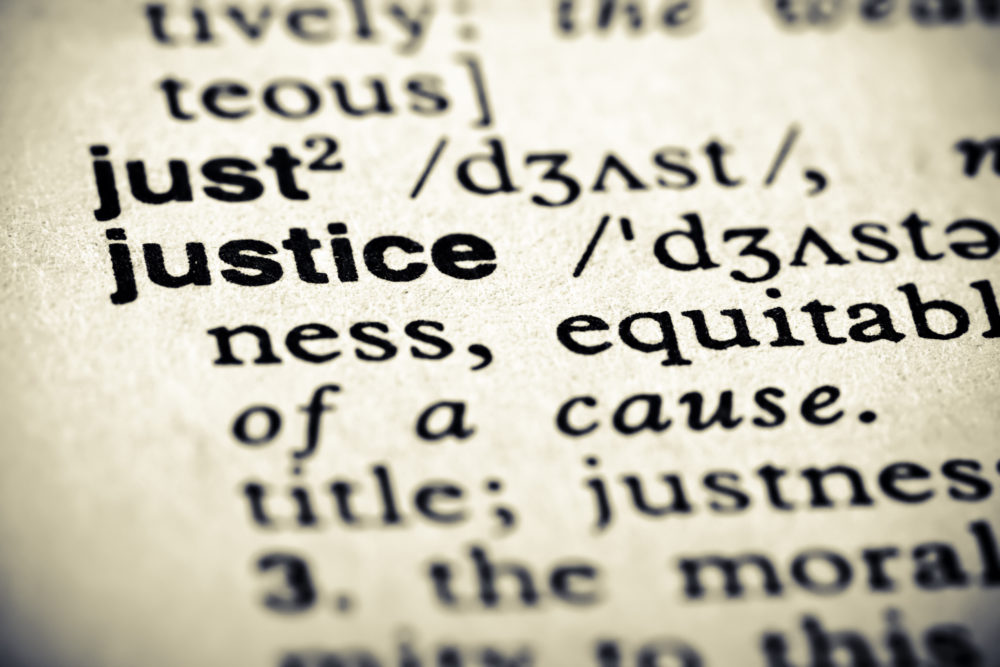Innocence Project Attorney Nina Morrison Addresses Prosecutorial Misconduct in NYTimes Op-Ed
06.18.18 By Innocence Staff
Today, the New York Times published an op-ed by Innocence Project Senior Staff Attorney Nina Morrison examining a recent prosecutorial misconduct scandal involving Glenn Kurtzrock, a former homicide prosecutor in Suffolk County. In May 2017, Kurtzrock was caught withholding exculpatory material from Messiah Booker, a man charged with first-degree murder who had maintained his innocence.
According to Morrison:
Mr. Booker was arrested and spent more than 18 months in jail awaiting trial before his defense lawyer discovered that Mr. Kurtzrock had altered hundreds of pages of police records to remove a wealth of exculpatory information. That included evidence pointing to another suspect he knew Mr. Booker’s lawyer had been investigating. The prosecutor had also removed the covers of two police notebooks to make it look like his altered versions of the documents were the originals.
Upon discovering Kurtzrock’s violation of Brady v. Maryland, the Suffolk County district attorney fired Kurtzrock and dismissed Booker’s murder charge mid-trial. The district attorney’s office proceeded to review the entirety of Kurtzrock’s case files and found that he had concealed evidence in four other cases—all four of which have since been overturned by the courts.
Related: Freedom at a cost: the devastating case of Corey Williams
Despite Kurtzrock’s actions, he has yet to be charged with a single crime.
He hasn’t even been suspended from practicing law, much less disbarred. He’s now working as a defense lawyer in private practice. That’s right: he’s making a living representing people accused of crimes, in the same courthouse from which he was (supposedly) banished a year ago. His law firm website even touts his experience as a “former homicide prosecutor.”
The law also makes it virtually impossible for Mr. Kurtzrock’s victims to sue him, with the Supreme Court having declared that individual prosecutors and their offices are “immune” from civil rights lawsuits in all but the rarest of cases.
Related: Prosecutors shouldn’t be granted total immunity for unlawful conduct
While Kurtzrock is the most recent example of prosecutorial misconduct, according to Morrison, it is certainly not uncommon.
“The National Registry of Exonerations, based out of the University of California, Irvine, reports that “official misconduct” — by police, prosecutors or both —was a factor in roughly half of the nearly 2,200 exonerations across the country since 1989,” writes Morrison. If prosecutorial misconduct is a significant factor in many wrongful convictions, how can it be remedied? Morrison explains:
It doesn’t have to be this way. Rather than tolerate a bar “discipline” process that is marred by lengthy delays, operates in secrecy, and too often results in little to no consequences for even serious misconduct, legislators should create commissions to regulate prosecutors’ conduct and law licenses, with greater accountability and transparency.
Last week, for example, the New York State Senate passed a bill that would require the establishment of a commission on prosecutorial conduct:
The Republican-controlled New York State Senate passed a landmark bill, sponsored by Senator John DiFrancisco and Assemblyman Nick Perry, that would require these reforms. The Assembly takes up the bill on Monday; if approved, it will head to Gov. Andrew Cuomo’s desk. And if he signs it into law, New York will be the first state in the country to create such a commission.
“If an elected district attorney is unwilling or unable to bring criminal charges against an assistant prosecutor who so flagrantly violates the law,” Morrison concludes, “the attorney general or governor should step in and appoint a special prosecutor.”
Read the full editorial here.
Leave a Reply
Thank you for visiting us. You can learn more about how we consider cases here. Please avoid sharing any personal information in the comments below and join us in making this a hate-speech free and safe space for everyone.
December 9, 2020 at 4:06 pm
December 3, 2020 at 5:27 pm
I have a case that involves a Brady violation only nobody to date cares at all. As a blk women living in Colorado I was pulled over 28 times in a 6 yr period of time. Number 28 resulted in a false arrest, proven in 2 different ways. My paid for car was towed. Denied a bond. 17 days later I’m out, go to my car but the 17 days did the job they wanted. Put it out of my reach so they could auction it off. I never saw it again. The arrest charge was never litigated. Denies me any opportunity to confront my arresting officers abt the arrest and what happened to my car. Instead I’m charged with DUR. Something I wasnt charged with the night of the arrest. Only parking in a fire lane. Had I been it’s not an arrestable offence. I was involved in a fender bender a few wks b4 trial and was ticketed for reckless driving. No DUR. I got official documents from DMV and my insurance company showing I was legal in both. The judge refused to accept them. The all wht jury found me guilty of DUR. No instruction to the jury at all. By withholding my documents from the jury that’s a Brady violation. Finding me guilty but them two cops r saved from me asking um even one question since the answers would put um in jail, maybe lose jobs. The two wht cops and the two wht judges who defended them crooks by denying me all Constitutional rights to defend myself as a Pro Se plaintiff. Post conviction relief petitions r dismissed repeatedly with denial of counsel leading the way. DENIAL OF ACCESS TO JUSTICE IS INJUSTICE. BRADY exist here.

The judge in my case also committed a Brady violation, still looking for help.